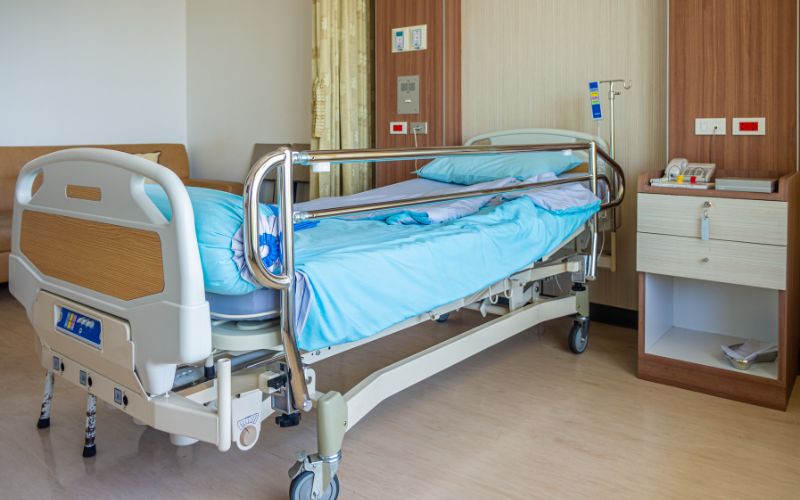Home healthcare has become increasingly prevalent, offering patients the comfort and convenience of receiving medical care in familiar surroundings. While a comfortable bed is essential for any patient, an adjustable bed can significantly enhance the quality of home healthcare.
Why Adjustable Beds Matter in Home Healthcare
Adjustable beds offer a myriad of benefits for patients undergoing home healthcare:
- Improved Comfort and Pain Management:
- Customized Positioning: Patients can adjust the bed to alleviate pressure points, reduce back pain, and improve circulation.
- Head and Foot Elevation: Elevating the head can help with breathing difficulties, acid reflux, and sinus congestion. Elevating the feet can reduce swelling and improve blood flow.
- Enhanced Mobility and Independence:
- Easier Transfers: Adjustable beds can be lowered to facilitate easier transfers in and out of bed, reducing the risk of falls and injuries.
- Independent Positioning: Patients can adjust the bed themselves, promoting a sense of independence and control.
- Preventive Care and Wound Healing:
- Pressure Relief: By relieving pressure on specific body parts, adjustable beds can help prevent pressure ulcers, a common complication for bedridden patients.
- Optimal Wound Healing: Elevating the affected area can improve blood flow, accelerate healing, and reduce pain.
- Improved Sleep Quality:
- Personalized Sleep Positions: Adjustable beds allow patients to find their optimal sleep position, leading to better sleep quality and reduced sleep disturbances.
- Reduced Snoring: Elevating the head can help alleviate snoring and sleep apnea, improving both the patient’s and caregiver’s sleep.
Choosing the Right Adjustable Bed for Home Healthcare
When selecting an adjustable bed for home healthcare, consider the following factors:
- Patient Needs: Assess the patient’s specific needs, such as pressure relief, pain management, or mobility assistance.
- Bed Size and Weight Capacity: Ensure the bed can accommodate the patient’s size and weight.
- Frame Material: Choose a durable frame material like steel or aluminum.
- Mattress Compatibility: Select a mattress that provides adequate support and comfort, such as a memory foam or gel-infused mattress.
- Ease of Use: Consider the bed’s controls and how easy they are to operate.
- Safety Features: Look for features like side rails and non-slip surfaces to enhance patient safety.
By investing in a high-quality adjustable bed, you can significantly improve the quality of home healthcare, enhance patient comfort, and promote faster recovery.
